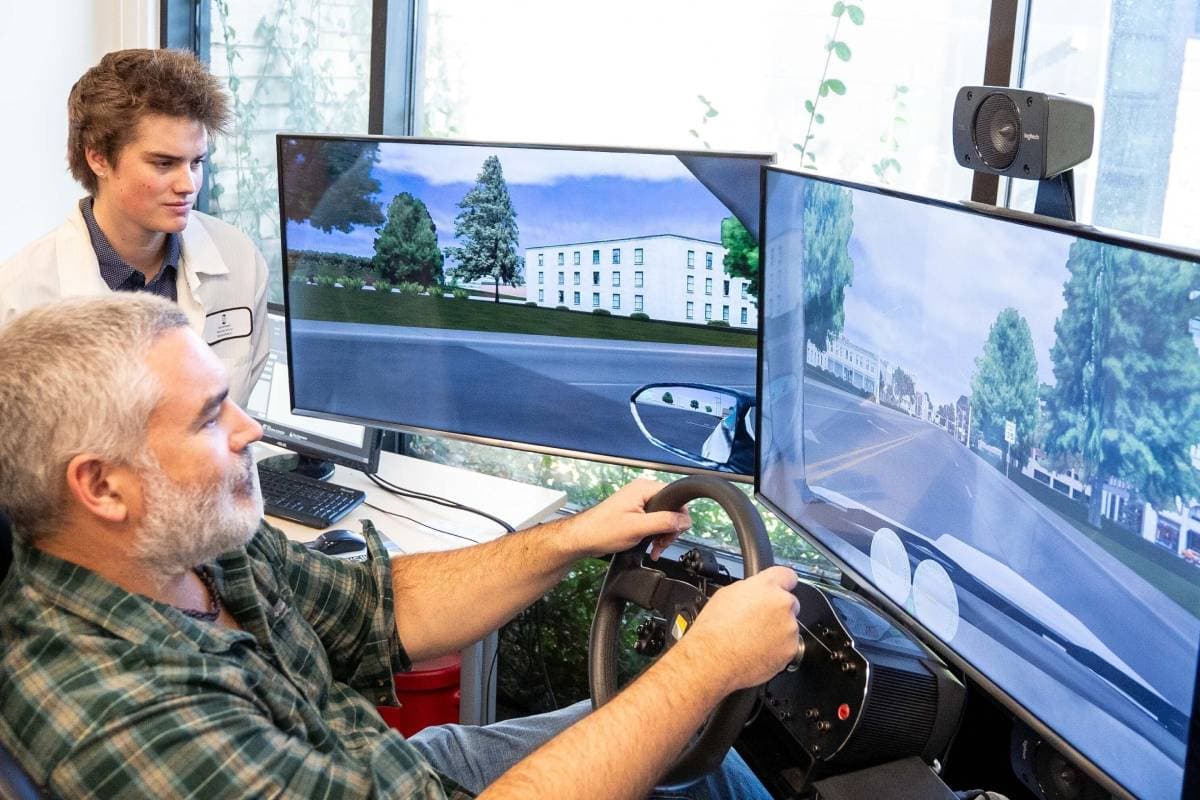
Colorado researchers think subtle changes in mobility could be early signs of Alzheimer’s disease or other forms of dementia. Dr. Neha Lodha, director of Colorado State University’s Movement Neuroscience and Rehabilitation Lab, believes ordinary activities, like cooking, walking and driving, offer clues.
We asked Dr. Lodha, also an associate professor at CSU, about an earlier study and a more recent one that focus on people’s driving abilities and habits.
On the importance of early diagnosis:
The truth is that by the time changes in memory become apparent, a lot of damage has already been done. And so what we are trying to do at my lab is to pick up subtle changes in behavior even before the onset of memory loss.
Then, people can take advantage of medicines that have been recently approved by FDA, like Lecanemab and Donanemab, that slow down cognitive decline. In addition to that, they can take advantage of programs and services, some actually provided by the Alzheimer's Association, to help families to adjust to the changes that Alzheimer's disease can bring to their lives and lives of their loved ones. So, it gives people that extra time to plan or to slow down the progression of disease.
What researchers found in an earlier study where people used a driving simulator:
We first started looking at driving in the lab environment, where we were using this motion-enabled driving simulator to have people drive in different kinds of scenarios that involved countryside driving, driving in inclement weather, driving in a roundabout and even route planning, like trying to find their way from a parking lot to a pharmacy.
And what we found was that when we had people do these kinds of tasks, we were able to look at their driving behavior in terms of the fluctuations in their driving speed or how consistently they were following the road signs, and these were very telling of whether somebody had cognitive impairments or if they were cognitively normal.
On specific examples of changes in behavior that signaled impairment:
We published a paper in the journal “Alzheimer's and Dementia,” and what we have shown is that, for example, if we ask them to do a route planning, we'll give them a map and we'll say, “Okay, can you find your way from where you are in the parking lot to this destination?”
We'll find that people who have cognitive impairments oftentimes will get lost or will take a long time to get to their destination. Where they might take two rounds in that roundabout or go back and forth on the same road to finally realize, “Oh, this was the landmark I was looking for.” So essentially, these are broadly spatial navigation deficits that we are seeing in the driving scenarios that we have tested people on in our laboratory.
Aren’t there a lot of people who aren’t great at looking at maps but don’t have cognitive impairments?
So you ask a very valid question, and very few people actually rely on map reading [because] we are used to using the GPS to provide us directions, but the point that I'm trying to make with this map reading is that we may not need to read a map, but we often do use written instructions. For example, if you have to build your furniture, you still read instructions and then translate them into motor actions. And this ability to read and understand and then translate it into a movement is a complex activity. So map reading just gives us a way of testing that.
| Whether you're aging yourself or caring for someone who is, what questions do you have? Email us at [email protected] or leave a voicemail at 303-871-9191 X 4480. |
On the current research, which tracks people driving in their cars:
When individuals who are interested in our study come to the lab, we do some cognitive motor and walking or balance tests in the lab. But then, what we also do is that we offer an option where they can have a sensor that is installed in their own car and then we let them drive the car for a whole year. We observe their weekly driving patterns, basically fluctuations in their driving patterns to identify who may or may not have cognitive impairments a few years down the line.
So as an example, participants with cognitive impairments tend to visit fewer distinct locations and you know, possibly this indicates reduced novelty-seeking behavior. Another way of describing this is that we find spatial navigation deficits and reduced exploration in those individuals who have cognitive impairments compared to those who are cognitively normal.
On the profiles of the people in the study:
We are inviting individuals between 65 to 80 years of age who have memory concerns or cognitive complaints and are current drivers. They have to have a driver's license in order to participate in this study. We are also inviting individuals who are in this age range of 65 to 80, but have no memory concerns and are cognitively healthy.
Researchers are still looking for people to take part in the study. Here are more details.
On early diagnosis of Alzheimer’s now and in the future:
Right now, the reliance is primarily on blood and brain-based biomarkers, but the people who actually are able to get these biomarkers had either genetic predisposition or they were part of a clinical study. Typically, when an individual in a physician's office is flagged for cognitive impairment, they already have had Alzheimer's disease for maybe five to 10 years and by this time, it is too late. So what I'm hoping is with our work, we will be able to combine the current biomarkers with behavioral biomarkers based on the things that we do every day and that is to walk, to move, to drive.
And our goal is that we are able to flag individuals who are showing some concerning behaviors and the physician can say, “Hey, you know, you may be a good candidate where we should go in and look at your brain or your blood biomarkers.” And then it's followed up with a more confirmatory analysis looking at their brain pathophysiology to confirm indeed if something is going on. And then that way they can be good candidates for these early treatments that are coming out now.
| This story is a part of Aging Matters, a series from Colorado Matters about the Centennial State's aging population. Read more stories here. |









